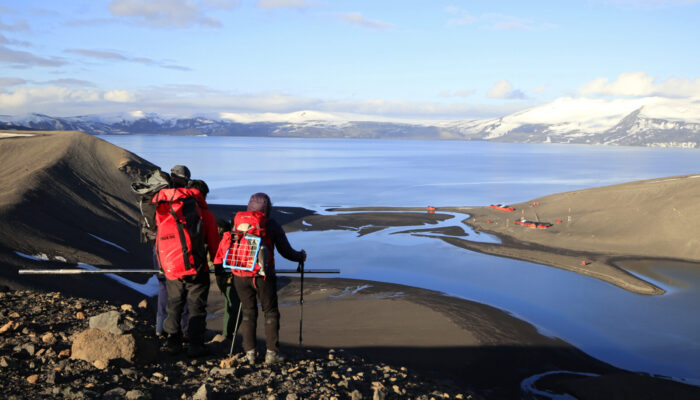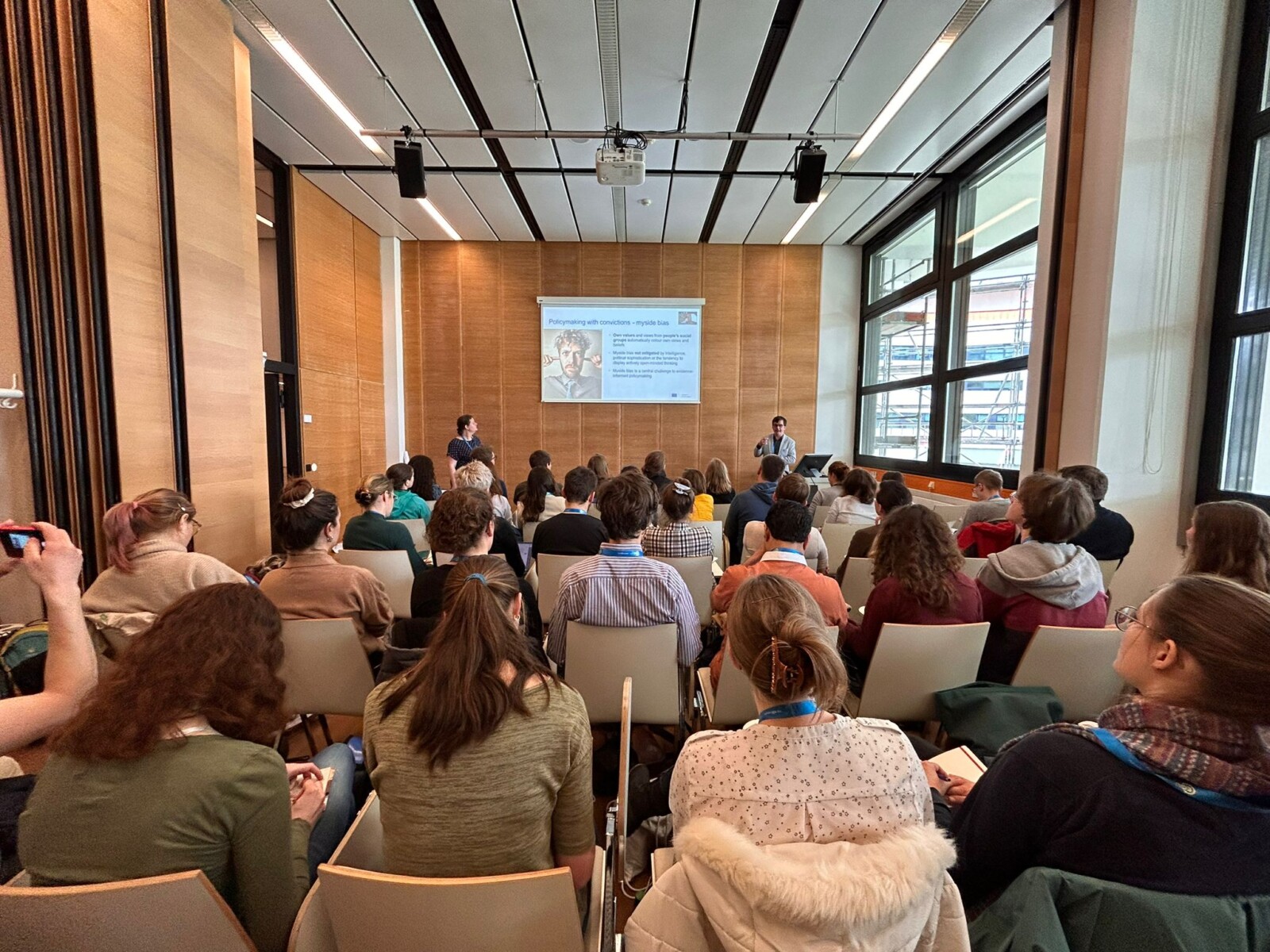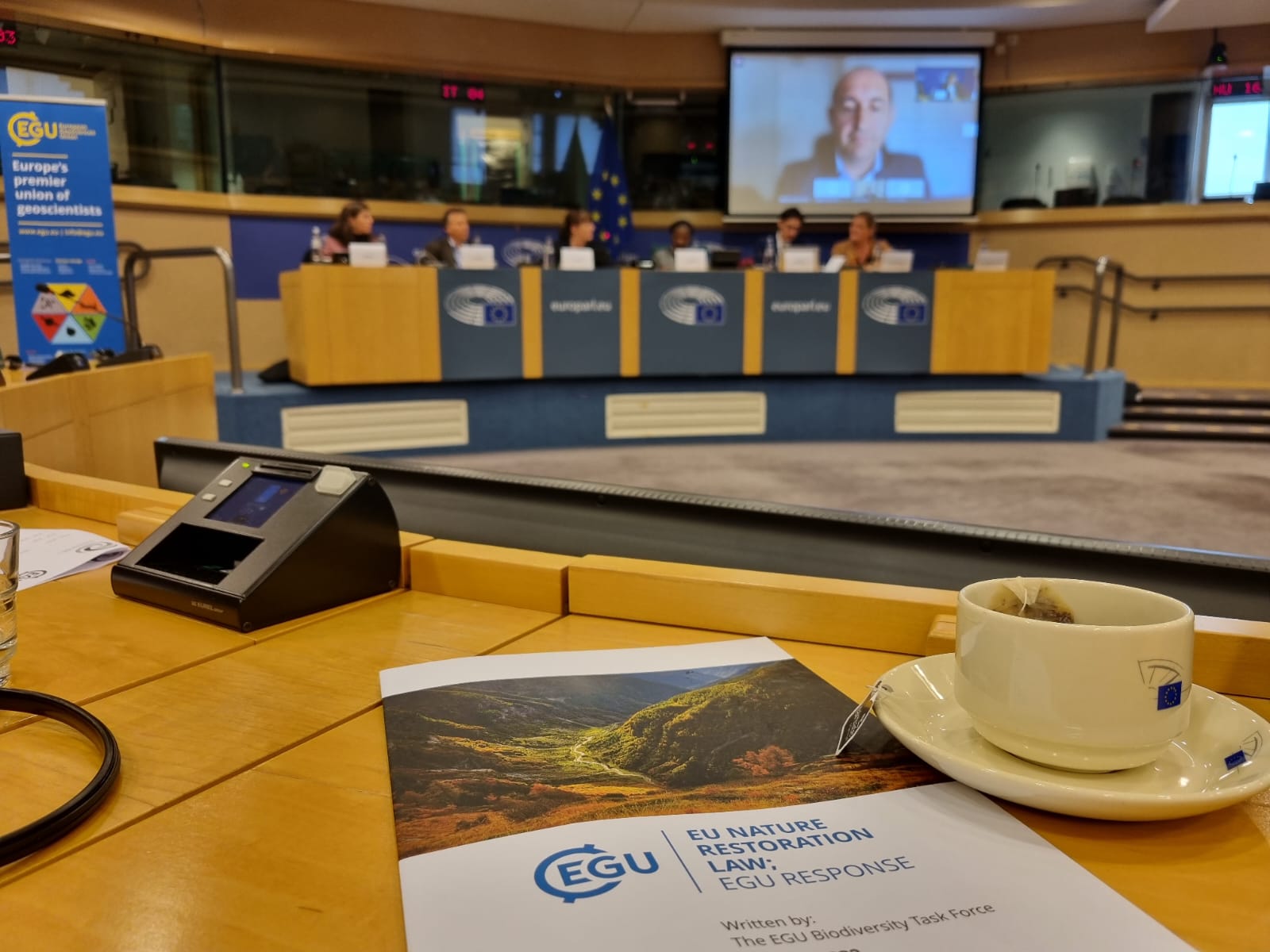
The EGU’s Science for Policy Programme is continually developing and expanding to help meet the needs of EGU members and European policymakers. This blog post will kick-off the New Year by outlining a few of the key science for policy activities that you can look forward to and engage with in the next 12 months.
EGU’s Division Policy Officers and Policy Points of Contact
In 2023, many EGU Divisions established Policy Officers or Policy Points of Contact within their division structure. This includes EGU’s Biogeosciences Division, Climate Past, Present & Future Division, Cryosphere Sciences Division, Energy, Resources, and the Environment Division, Natural Hazards Division, and Soil System Sciences Division. While each EGU Division is unique, the volunteers working as Division Policy Officers and Policy Points of Contact will undertake activities that provide their Division members with resources and information about how they can effectively engage in policymaking and help to provide policymakers with relevant and useful information.
If you’re interested in engaging with your Division Policy Officer or Point of Policy Contact, you can join their Slack group and participate in discussions here. You can also learn more about these positions and how you can engage with them by joining the EGU24 Splinter meeting: Meet your EGU Division Policy Points of Contact.
EGU’s Science for policy programme at EGU24
Not only does the EGU General Assembly have a huge range of scientific sessions, but there are also plenty sessions that participants can attend to learn new skills and expand on their expertise. Each year, the EGU’s Science for Policy Working Group hosts several sessions that aim to help participants more effectively contribute to the policymaking process and find opportunities to start engaging. This includes EOS sessions, Short Courses, Splinter Meetings, Great Debates, and Union Symposia! Keep an eye out for April’s GeoPolicy blog post with a list of these policy-relevant sessions.
EGU24 will also host a number of other science for policy initiatives that you can register for now for more tailored #SciPol support. Submit your science for policy questions to EGU’s Ask a Science-Policy Expert initiative to be paired with someone working on the science-policy interface who will be able to answer them in an in-person or virtual meeting during the General Assembly. Alternatively, you can submit your research topic to the Pitching your research to a policymaker Splinter Meeting to practice sharing your project or expertise with policymakers. This Splinter Meeting will give those involved the opportunity to practice their research pitch to a panel of science-policy experts and provide them with feedback that can help them refine their presentation and ensure their research resonates with the policy community moving forward. And, as always, the EGU’s Science for Policy Working Group will also be hosting the daily Science for Policy Help Desk at the EGU Booth.
EGU’s monthly Science for Policy Hangouts
EGU’s monthly Science for Policy Hangouts have provided EGU members with an informal space to meet and chat about science for policy and related topics throughout 2023. In 2024, these Hangouts will continue with new, exciting guest speakers and a growing community of EGU members who are interested in engaging in policymaking processes! You can join these Hangouts at 14:00 CET on the first Monday of each month. You can pre-register to join these Hangouts here. February’s Hangout will take place on Monday 5 February and feature Toby Wardman, SAPEA head of communications for the Scientific Advice Mechanism to the European Commission and host of their Science for Policy podcast.
If you would like to share a policy-related opportunity or project during one of EGU’s 2024 Hangouts, please don’t hesitate to get in touch via policy@egu.eu.
Continuing the EGU Science-Policy Pairing Scheme
In 2023, the EGU sponsored two scientists to work alongside a Member of the European Parliament (MEP) inside the European Parliament as part of the EGU’s Science-Policy Pairing Scheme. You can read more about this pairing scheme and others that take place across Europe in this GeoPolicy Blog post. The EGU plans to continue running its Science-Policy Pairing Scheme in 2024 but will only be able to provide more information about the MEPs involved and how to apply after the 2024 European elections.
Consolidating the work of the EGU’s Biodiversity Task Force
In early 2022, eight scientists with diverse scientific backgrounds and experiences were selected to join the EGU Biodiversity Task Force with the aim of bridging the gap between science and policy, delivering scientific information and expertise to where it is most needed. Throughout 2022 and 2023, the EGU Biodiversity Task Force has submitted feedback on a European Commission Consultation, outlined seven key recommendations to strengthen the EU Nature Restoration Law, and hosted an event inside the European Parliament to highlight these recommendations to the Members of the European Parliament working on the legislation.
During 2024, the Biodiversity Task Force will be consolidating their work and further disseminating the resources and publications that they have created before wrapping up at the end of 2024. Throughout this year, they will also be sharing the processes and methods that they have used with other research institutions and scientific groups who may wish to learn from their experience on the science-policy interface. You can follow the EGU Biodiversity Task Force’s activities and developments here. Suggestions and requests for biodiversity-related information or insights from the group can also be sent to policy@egu.eu.
Towards the end of 2024, the EGU Science for Policy Working Group will be shortlisting future EGU Policy Priority Areas. Once this is selected, a new Policy Task Force will be established in early 2025 with an open call for EGU members to join
Science for policy news and updates
The EGU will continue to provide science for policy updates throughout 2024. The EGU’s Science for Policy Newsletter is sent out each month and includes a range of resources and upcoming policy opportunities that are relevant for EGU members. These include EGU’s policy activities and initiatives but also external events, pairing scheme, resources, relevant EU policy updates, podcasts, and consultations. The EGU’s monthly GeoPolicy blog posts also provide deeper dives into specific policy initiatives, organisations, and topics that may be of interest to EGU members. EGU’s other science for policy initiatives are highlighted and regularly updated on the policy section of EGU’s website.
Throughout 2024, we’ll also continue to look for new ways of engaging EGU members and providing relevant and timely scientific information to policymakers who need it! If you have a science for policy idea or activity that you would like the EGU to consider, please don’t hesitate to let us know or give us feedback via policy@egu.eu.






